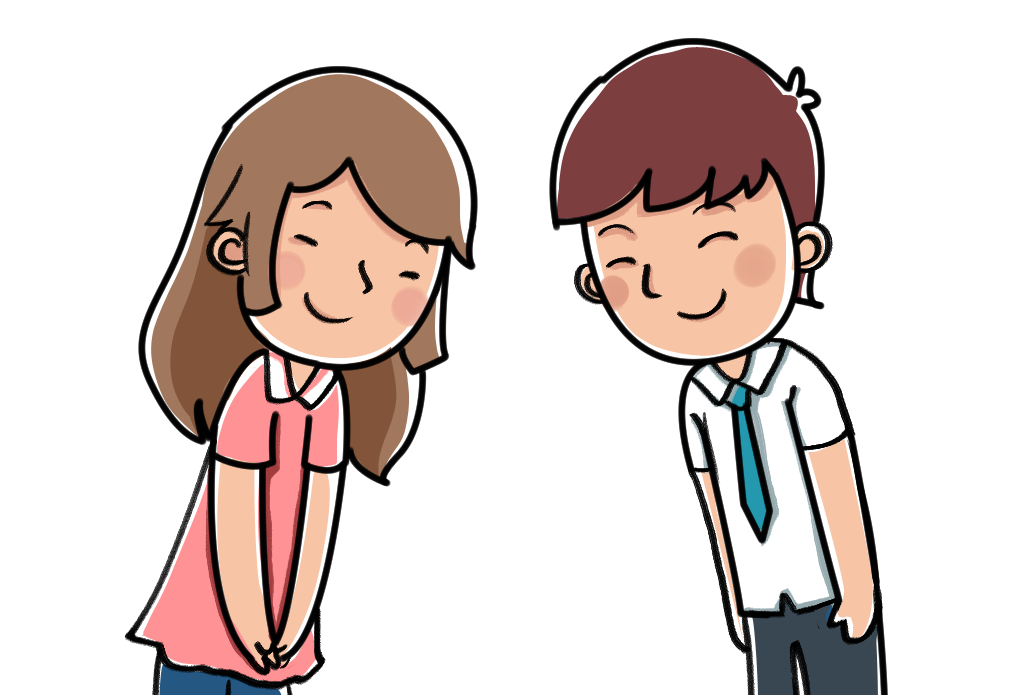Hi ! We hope this site helps you! ٩(ˊᗜˋ*)و As an Amazon Associate, we earn from qualifying purchases without additional cost. Click to read more about our Privacy Policy or Affiliate Disclosure
Let’s learn how to introduce yourself in Japanese! You can also use this article as a reading practice~ Happy learning!

Introduction in Japanese
Melissa: はじめまして。わたしはメリサです。アメリカじんです。
にじゅうごさいです。よろしくおねがいします。
A: Nice to meet you. I’m Melissa. I’m American.
I’m 25 years old. It’s a pleasure to meet you.
Tommy: はじめまして。トミです。
こちらこそよろしくおねがいします。
B: Nice to meet you. I’m Tommy.
It’s a pleasure to meet you too.
Conversation above is a very common lesson for Japanese beginners. Let’s break it down one by one!
はじめまして (hajimemashite)
You may feel that the translation is weird since “Nice to meet you” is used 2 times. But actually the literal translation for this word is “The first time”. So roughly, this word means “It’s the first time meeting you”. But it’s quite weird way to say in English, therefore it’s almost always being translated as “Nice too meet you”
Notice that Tommy repeat the word はじめまして again. This word is a must have opening for a self introduction. You could treat this word as a set-phrase you need to memorize when meeting a new person 😀
メリサです (Merisa desu)
Melissa is written in Katakana since it’s a foreign word. And notice that Japanese doesn’t have any L, therefore it’s written as RI. And since the ssa sound is similar to sa sound, the double S is ignored.
です is Japanese to be. Note that you don’t see any I am, but it’s being translated as I am Melissa. The word actually just state “Melissa”. Again, it’s weird in English, therefore translated as I am Melissa.
アメリカ人です (Amerika jin desu)
人 (hito) is man/person. Used as a suffix after a country, it means “a person from (country)”. In this case, it means “American”.
二十五歳です (ni juu go sai desu)
歳 is a counter for age. And 二十五 is 25.
よろしくおねがいします
This word is often translated as “nice to meet you”, “it’s a pleasure to meet you”, “please be nice to me” or “please treat me well”. It’s hard to break down this phrase. You could treat it as a set-phrase and notice that it’s always used to end an introduction.
Notice that Tommy also repeat this word when ending his sentence. But he added “こちらこそ (kochira koso)”. More or less, this word literally means “here for sure”. All together it means. “Here too, please be nice”. In English, it’s naturally translated as “nice to meet you too”.
And that’s all for today’s lesson! Hope you all learn a lot~
Happy learning!
